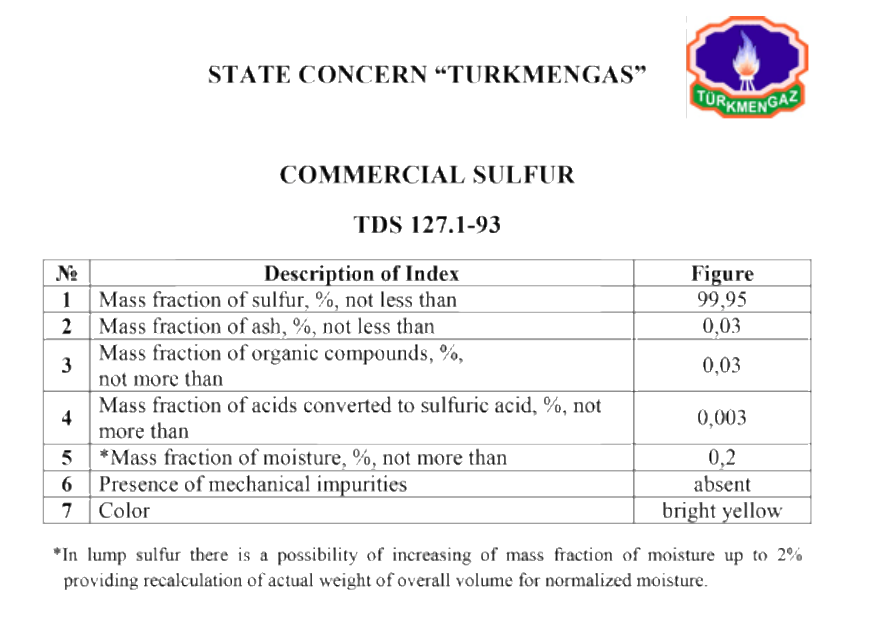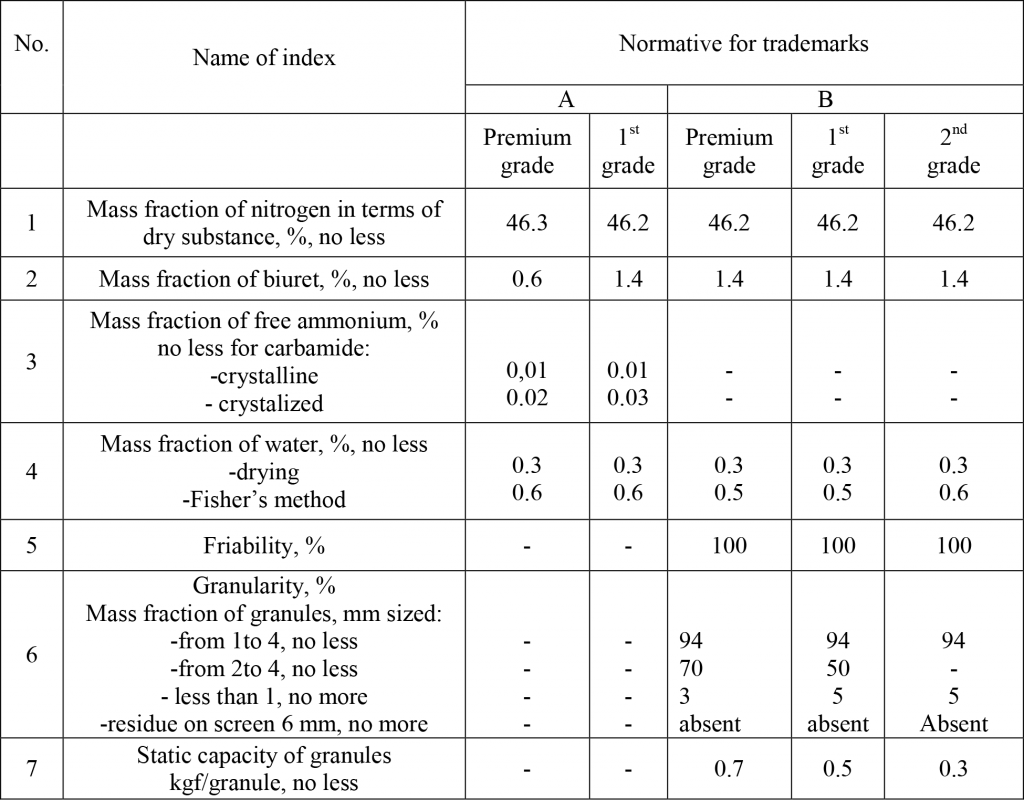Focusing on Turkmenistan’s Granular Sulfur
Granular Sulfur in General:
- Granular sulfur is a form of sulfur that is easy to handle, has a custom shape, and resembles pea grains.
- It is widely used in various industries, including sulfuric acid production, agriculture, medical, food, paper, and rubber.
- Traditionally, sulfur was sourced from volcanic zones or obtained through drilling processes using hot air steam. However, modern technology has enabled the recovery of sulfur from oil refineries, significantly reducing sulfur dioxide emissions.
- Granular Sulfur is convenient for agricultural use, especially when applied with agricultural machinery.
- Turkmenistan’s Granular Sulfur:
- Turkmenistan is known for its sulfur production, and it offers granular sulfur as well.
- Specific details about Turkmenistan’s granular sulfur quality are available in our website.
- However, Turkmenistan’s sulfur is an essential component for various applications, including vegetable protein synthesis, fats, and organic compound synthesis in plants. It also plays a crucial role in photosynthesis and plant respiration.
- Price Comparison:
- Price comparisons between Turkmenistan’s granular sulfur and other countries’ products, we can provide some general context.
- Granular and Lump sulfur (another form of sulfur) from Turkmenistan is cheaper than countries’ products.
- Keep in mind that granular sulfur typically commands a higher price due to its specific properties and ease of handling.
- For accurate price comparisons, it’s best to consult industry-specific sources or directly contact our company.
In summary, granular sulfur from Turkmenistan is valuable for various applications, and its quality and pricing may vary based on market dynamics and regional factors. For precise comparisons, consider reaching out to our or countries’ experts.

Focusing on Turkmenistan’s Granular Urea 46%
Granular Urea 46% – Turkmenistan
- Uses:
- Granular urea is used in various industries for manufacturing pitches, glues, etc.
- In agriculture, it serves as a mineral nitrogen fertilizer.
- It can also be utilized as a fodder additive in animal husbandry.
- Safety and Storage:
- Urea is non-combustible and explosion-proof under normal conditions.
- It falls into the 3rd class of hazardous substances concerning its influence on organisms.
- Stored in closed rooms to protect it from rainfall.
- Bulk storage should avoid mixing with other fertilizers.
- Production Plants in Turkmenistan:
- Tejenkarbamid Plant: Operational since 2006, with an annual capacity of 350,000 tons.
- Marykarbamid Plant: Another existing granular urea producer.
- Garabogazkarbamid Plant: The largest urea production plant in Central Asia, operational since 2018.
- Uses:
- Price Comparison:
- The price of granular urea in Turkmenistan can vary based on market dynamics and global factors.
- For accurate price comparisons, it’s best to consult industry-specific sources or directly contact Kasra International Trading Group Co.
- Physical Properties:
- Nitrogen fraction of total mass on a dry basis: 46.2%
- Biuret (Ureido Formamide) fraction of total mass: 1.4% (maximum)
- Loose ammonia fraction of total mass (for carbamide):
- Crystal: Not applicable
- Prilled: Not applicable
- Mass share of water:
- Method of drying: 0.3%
- Method Fisher: 0.5%
- Friability: 100%
- Distribution of sizes:
- Granules with size 1-4 mm: Not less than 94%
- Granules with size 2-4 mm: Not less than 70%
- Granules less than 1 mm: Not less than 3%
- 6-mm sieve residue: Absence
- Static hardness of granules: Not less than 0.7 kgf/granule
In summary, Turkmenistan’s granular urea is a concentrated nitrogen fertilizer with specific physical properties. Its production plants contribute significantly to the global urea market. For accurate and up-to-date pricing information, consider consulting market reports or industry experts.

